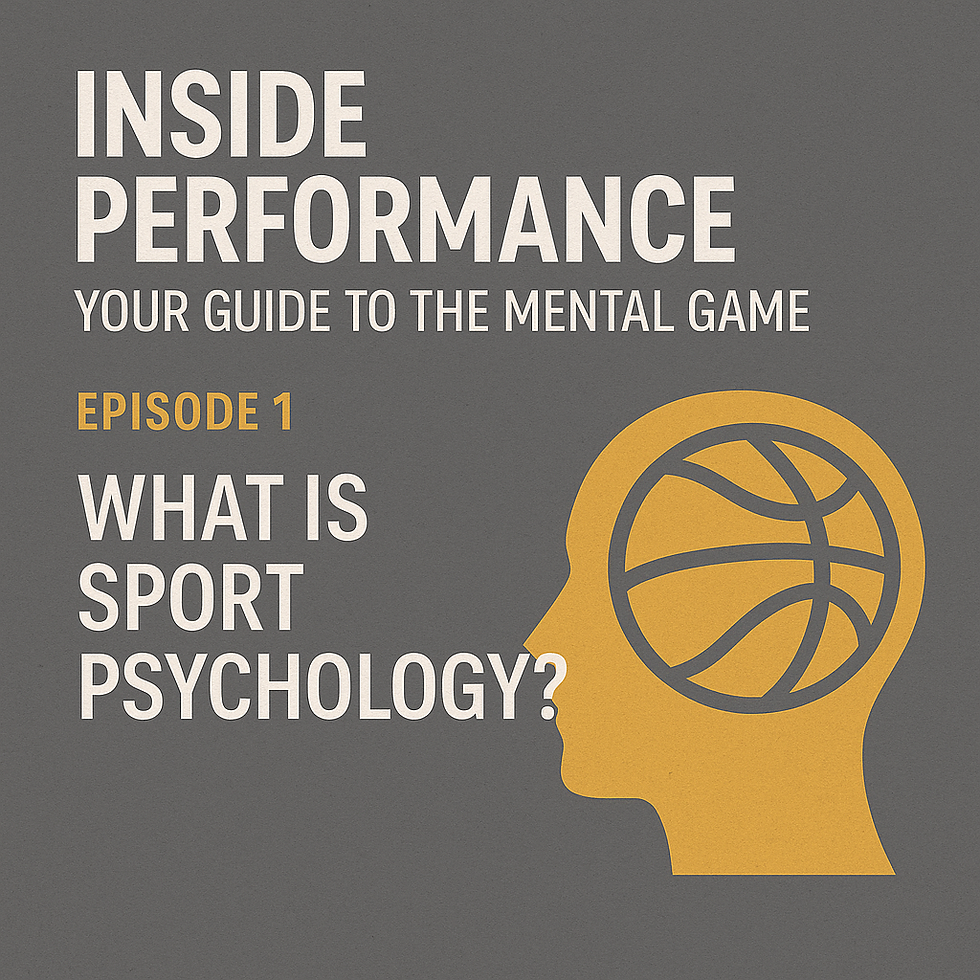The Role of Psychology in Enhancing Athletic Performance
- Dylan Rodgers
- Nov 3, 2025
- 3 min read
Athletic performance is often seen as a measure of physical strength, endurance, and skill. However, the mental aspect plays an equally crucial role in determining an athlete's success. Psychology benefits in sports are increasingly recognised as essential for improving focus, motivation, and resilience. Understanding how the mind influences the body can unlock new levels of performance and help athletes overcome challenges both on and off the field.
Understanding the Impact of Psychology Benefits on Athletes
Psychology benefits in sports refer to the mental strategies and techniques that athletes use to enhance their performance. These include goal setting, visualization, self-talk, and stress management. When athletes develop strong mental skills, they can maintain concentration during high-pressure moments, recover quickly from setbacks, and sustain motivation throughout training and competition.
For example, a runner preparing for a marathon might use visualization to imagine crossing the finish line, which builds confidence and reduces anxiety. Similarly, a football player might practice positive self-talk to stay focused after a mistake during a game. These psychological tools are as important as physical training because they help athletes control their emotions and maintain a winning mindset.

Key Psychology Benefits That Boost Athletic Performance
Several psychology benefits contribute directly to better athletic outcomes. Here are some of the most impactful:
Improved Focus and Concentration: Athletes learn to block out distractions and stay present in the moment, which is vital during competitions.
Enhanced Motivation: Setting clear, achievable goals keeps athletes driven and committed to their training routines.
Stress and Anxiety Management: Techniques such as deep breathing and mindfulness help athletes stay calm under pressure.
Increased Confidence: Positive reinforcement and mental rehearsal build self-belief, which translates into better performance.
Better Recovery from Setbacks: Mental resilience allows athletes to bounce back quickly from injuries or poor performances.
By integrating these psychological strategies, athletes can perform consistently at their best. Coaches and trainers often work with sport psychologists to tailor mental training programs that complement physical preparation.
Practical Techniques to Harness Psychology Benefits
Athletes can apply several practical techniques to leverage psychology benefits effectively:
Goal Setting
Break down long-term objectives into smaller, manageable goals. For instance, a swimmer aiming to improve their time can set weekly targets for stroke efficiency or endurance.
Visualization
Spend a few minutes daily imagining successful performance scenarios. This mental rehearsal prepares the brain for actual competition and reduces performance anxiety.
Mindfulness and Meditation
Practising mindfulness helps athletes stay grounded and focused. Meditation sessions can improve emotional regulation and reduce stress levels.
Positive Self-Talk
Replace negative thoughts with encouraging statements. For example, instead of thinking "I can't do this," an athlete might say, "I am prepared and capable."
Routine Development
Establish pre-competition routines to create a sense of control and readiness. This might include specific warm-up exercises, listening to music, or breathing exercises.
Implementing these techniques consistently can lead to noticeable improvements in performance and overall well-being.

The Science Behind Sport Psychology Benefits
Research in sport psychology shows that mental training can significantly enhance physical performance. Studies reveal that athletes who engage in psychological skills training experience:
Reduced cortisol levels, indicating lower stress
Improved reaction times and decision-making abilities
Greater pain tolerance and endurance
Enhanced teamwork and communication skills
These findings highlight the biological and cognitive mechanisms through which psychology benefits operate. For example, visualization activates similar brain regions as physical practice, reinforcing neural pathways that improve motor skills. Additionally, managing anxiety prevents the "choking" phenomenon, where pressure causes a sudden drop in performance.
Understanding these scientific principles helps athletes and coaches design effective mental training programs tailored to individual needs.
Integrating Psychology Benefits into Athletic Training
To fully benefit from sport psychology, integration into daily training is essential. Here are some actionable recommendations:
Work with a Sport Psychologist: Professionals can assess mental strengths and weaknesses and provide personalised strategies.
Include Mental Skills in Practice: Combine physical drills with mental exercises like focus training or scenario planning.
Monitor Progress: Keep a journal to track mental states, challenges, and improvements over time.
Educate Teams and Coaches: Promote awareness of psychology benefits to create a supportive environment.
Use Technology: Apps and biofeedback devices can assist in practising relaxation and concentration techniques.
By embedding psychological training into the athletic routine, performance gains become sustainable and holistic.
Moving Forward with a Stronger Mindset
Athletic success is no longer just about physical prowess. The role of psychology benefits in enhancing athletic performance is undeniable. Athletes who invest in their mental game gain a competitive edge that can make all the difference in high-stakes situations.
Whether you are an athlete, coach, or sports enthusiast, exploring the sport psychology benefits can open new pathways to excellence. Embrace mental training as a vital component of your athletic journey and watch your performance reach new heights.



Comments